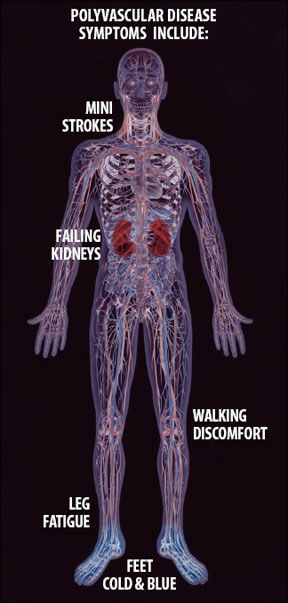Cardiologists have long known that patients with severe plaque buildup (atherosclerosis) in one location-for example, the coronary arteries-also may have it in the carotid arteries, kidney arteries, and legs. Recent news revealed how serious the condition, known as polyvascular disease, can be. According to a study presented at the 2008 meeting of the American College of Cardiology in April, symptomatic atherosclerosis in more than one location (physicians call these "arterial beds") substantially increases the risk of a serious or fatal cardiovascular event. "The seriousness of polyvascular disease goes above and beyond that of other risk factors," says Cleveland Clinic cardiologist Deepak Bhatt, MD. "Like diabetes, polyvascular disease is an independent risk factor for a cardiovascular event. Patients with polyvascular disease and no other risk factors are at significantly increased risk for heart attack, stroke or kidney failure."
To continue reading this article or issue you must be a paid subscriber.
Sign in






